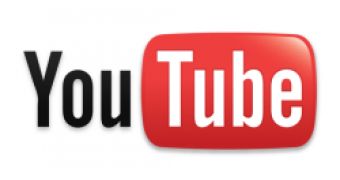YouTube hasn't been seen as one of Google's best or rather most profitable deals to date, with the search giant having paid $1.65 billion for the video site in 2006 and having yet to see any profits. And for some years many have said that YouTube is actually impossible to monetize and that the costs will always outweigh the revenue. Finally though, it looks like the search giant is getting confident enough to actually stand behind its service and say that the site will become profitable and that it is already doing much better than even a year ago.
Last week Google revealed its earnings for the second quarter. While most of the focus was on the financial side – the company is doing pretty well, considering the economic conditions, with a 3 percent growth in revenue from Q1 –, one of the finer points that Google execs wanted to underline was that YouTube wasn't the resource hog it used to be and that the current trends had it becoming profitable sometime in the future, though a definite time frame wasn't supplied.
And now the search giant is getting even more defensive, and vocal, about its product with a blog post busting some popular “myths” surrounding YouTube. First there is the content 'problem' with many saying that user-generated content can only get you so far and that YouTube is limited because of its mostly short-form content. Not so, say Chris Dale and Aaron Zamost, Communications and Public Affairs; the site has “thousands of premium content partners, from Sony to Disney to Universal Music, and fans can find hundreds of full-length feature films and thousands of full-length TV episodes on YouTube.” The quality of the videos has also improved, with the site now boasting the biggest collection of HD videos online.
Most of the complaints are about the financial side of the business though, but YouTube is quick to dismiss them as well, saying that users and traffic growth, while raising the cost of bandwidth and storage, are still beneficial to the site now that some of the numbers put forward, like the fact that only 3 to 5 percent of the content is monetized, simply aren't true and haven't been for a while. Finally YouTube points out that advertisers are, in fact, flocking to the site, with “over 70% of Ad Age Top 100 marketers [that] ran campaigns on YouTube in 2008.”
It's clear that YouTube is doing much better and may very well be on track to becoming profitable but at the end of the day hard numbers are the ones that count so Google should start making good on these promises.

 14 DAY TRIAL //
14 DAY TRIAL //